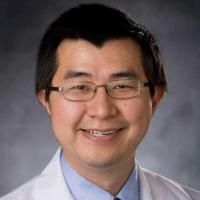Outcomes and costs of autologous stem cell mobilization with chemotherapy plus G-CSF vs G-CSF alone.
Date
2013-11
Journal Title
Journal ISSN
Volume Title
Repository Usage Stats
views
downloads
Citation Stats
Abstract
Chemotherapy plus G-CSF (C+G) and G-CSF alone are two of the most common methods used to mobilize CD34(+) cells for autologous hematopoietic SCT (AHSCT). In order to compare and determine the real-world outcomes and costs of these strategies, we performed a retrospective study of 226 consecutive patients at 11 medical centers (64 lymphoma, 162 multiple myeloma), of whom 55% of lymphoma patients and 66% of myeloma patients received C+G. Patients with C+G yielded more CD34(+) cells/day than those with G-CSF alone (lymphoma: average 5.51 × 10(6) cells/kg on day 1 vs 2.92 × 10(6) cells/kg, P=0.0231; myeloma: 4.16 × 10(6) vs 3.69 × 10(6) cells/kg, P<0.00001) and required fewer days of apheresis (lymphoma: average 2.11 vs 2.96 days, P=0.012; myeloma: 2.02 vs 2.83 days, P=0.0015), although nearly all patients ultimately reached the goal of 2 × 10(6) cells/kg. With the exception of higher rates of febrile neutropenia in myeloma patients with C+G (17% vs 2%, P<0.05), toxicities and other outcomes were similar. Mobilization with C+G cost significantly more (lymphoma: median $10,300 vs $7300, P<0.0001; myeloma: $8800 vs $5600, P<0.0001), although re-mobilization adds $6700 for drugs alone. Our results suggest that although both C+G and G-CSF alone are effective mobilization strategies, C+G may be more cost-effective for patients at high risk of insufficient mobilization.
Type
Department
Description
Provenance
Subjects
Citation
Permalink
Published Version (Please cite this version)
Publication Info
Sung, AD, DT Grima, LM Bernard, S Brown, G Carrum, L Holmberg, ME Horwitz, JL Liesveld, et al. (2013). Outcomes and costs of autologous stem cell mobilization with chemotherapy plus G-CSF vs G-CSF alone. Bone Marrow Transplant, 48(11). pp. 1444–1449. 10.1038/bmt.2013.80 Retrieved from https://hdl.handle.net/10161/16169.
This is constructed from limited available data and may be imprecise. To cite this article, please review & use the official citation provided by the journal.
Collections
Scholars@Duke

Anthony D Sung
I am dedicated to the treatment of hematologic malignancies through cellular therapies such as hematopoietic stem cell transplantation (HCT). My research focuses on strategies to reduce complications of HCT and ranges from preclinical studies using murine models of HCT to Phase 1 and Phase 2 clinical trials. Areas of interest include the role of the microbiota (the trillions of bacteria living in and on our bodies), nutrition, and exercise in modulating HCT outcomes such as graft-versus-host disease (GVHD) and infections. In addition to advancing new pharmacological and cellular immunotherapies in support of these goals, we also are developing mobile health technologies (mHealth) to monitor patients at home, both as part of our innovative home transplant program as well as to improve follow up care of all our patients when they return home after transplant.

Mitchell Eric Horwitz
Allogeneic stem cell transplantation with a focus on the use of umbilical cord blood grafts; Allogenic stem cell transplantation for Sickle Cell Disease; Prevention of acute and chronic graft versus host disease; Improving immune recovery following alternative donor stem cell transplantation using donor graft manipulation.
Unless otherwise indicated, scholarly articles published by Duke faculty members are made available here with a CC-BY-NC (Creative Commons Attribution Non-Commercial) license, as enabled by the Duke Open Access Policy. If you wish to use the materials in ways not already permitted under CC-BY-NC, please consult the copyright owner. Other materials are made available here through the author’s grant of a non-exclusive license to make their work openly accessible.
